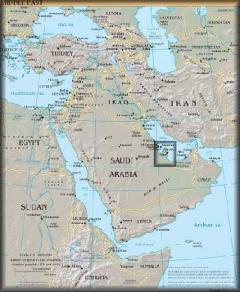SCOTTISH QATARI FINANCIAL LINKS MORALLY QUESTIONABLE

The Celtic League were critical two years ago when the Isle of Man government started to 'court' various Middle Eastern States to stimulate business interests and economic development of the Manx financial services industry.
We rightly highlighted the questionable human rights record of the United Arab Emirates which was the focus of the Manx government initiative.
The same reservations must pertain to the recent attempts by the Scottish government to forge links with states in this area so as to tap into their vast financial resources to fund Scottish infrastructure projects. The Scottish government are focusing their efforts on Qatar which has a human rights record every bit as distasteful as the UAE.
Amnesty International, Human Rights Watch (HRW) and the US State Department have been highly critical over the years of rights abuses in both the UAE and Qatar.
Amongst issues highlighted in the most recent Amnesty Report were:
«Nationality rights
The authorities restored Qatari nationality to some 2,000 people, including many al-Ghufran members of al-Murra tribe. However, some alleged that their birth records had been amended to indicate erroneously that they were born outside Qatar, rendering them ineligible to vote. Other cases of arbitrary deprivation of nationality remained unresolved and several new cases were reported.»
«Violence against women
The authorities failed adequately to address discrimination and violence against women.»
«Migrant workers
Foreign migrant workers, who make up a large proportion of Qatar's workforce, complained that they were exploited, including by non-payment of wages. They continued to have inadequate protection under the law.»
«Cruel, inhuman and degrading punishments
Sentences of flogging continued to be imposed.»
«Death penalty
One person was sentenced to death and at least 22 people were on death row, but no executions were reported.»
A series of Amnesty International annual reports on Qatar can be foundhere:
Similar concerns are voiced in the much more detailed US State Department Human Country Reports on human rights which states in its preamble:
«Citizens lacked the right to change their government peacefully. There were judicially sanctioned corporal punishments and arbitrary and prolonged detentions in overcrowded and harsh facilities. The government continued to restrict civil liberties, such as freedom of speech (including the Internet), press, assembly, and association. Some limitations on religious freedom existed. There were also some restrictions on foreign travel, as well as arbitrary deportations, sometimes after detention for several years. Trafficking in persons, primarily in the labor and domestic worker sectors, was a problem. Legal and cultural discrimination against women limited their full participation in society. The unresolved legal status of »Bidoons« (Arabic for »without« meaning »without citizenship;« stateless persons with residency ties) resulted in discrimination against these noncitizens. Worker rights were severely restricted, especially for foreign laborers and domestic servants.»
The full US State Department report can be found at:
J B Moffatt Director of Information Celtic League
11/10/08
■